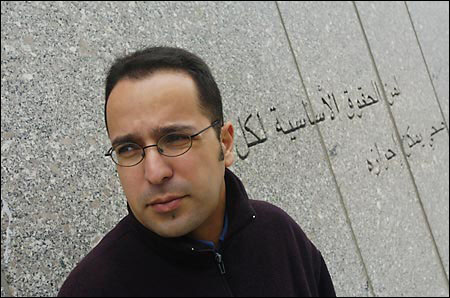Program in Ethics and Health fellows begin tenure

The first three recipients of the postdoctoral fellowship in the Harvard University Program in Ethics and Health have settled in to begin their two years of research in ethical issues arising in health care and public health. They are: Eric Cavallero, the recipient of a Ph.D. in philosophy from Yale University in 2002. He has taught at Yale and the University of Arizona, and has held a faculty fellowship in the Center for Ethics and Public Affairs at Tulane University in Louisiana. Cavallero’s research has focused on the structure and moral limits of political sovereignty, global distributive justice, and the ethics of immigration policy. During his fellowship Cavallero will pursue issues in global justice and international law.Neema Sofaer is particularly interested in the ethics and regulation involved in conducting clinical trials in developing countries.Shlomi Segall, the recipient of a 2004 Ph.D. in philosophy in politics from the University of Oxford, where he was recently a lecturer in political theory. Segall has studied ethical aspects of welfare policy and now plans to narrow his field of inquiry to the field of health care. Specifically, he will look at the tension between two conflicting trends – providing care for all on the basis of need and holding individuals responsible for their personal choices. Neema Sofaer, the holder of a 2004 Ph.D. in philosophy from the Massachusetts Institute of Technology. She has helped to write briefs for the White House, the NIH, and Development Gateway Foundation/World Banks on topics ranging from health policies for sub-Saharan Africa to building research capacities overseas. She is a member of the Harvard School of Public Health’s Institutional Review Board. She is interested, in particular, in the ethics, regulation, and operations of conducting clinical trials in developing countries. The fellowship is designed to support scholars who draw on analytic moral and political philosophy to focus on ethical issues in health policy and population and international health, including health system reform, social inequalities in health, controversies arising over international health research involving human subjects, and ethical dilemmas in the practice of public health. Hallmarks of research in this area are: concern with health as well as health care, an emphasis on the developing world, engagement with economists and epidemiologists, expanding bioethics to address issues raised by demographic trends, attention to state responsibilities and constraints in public health. Fellows participate in a weekly tutorial, in the program’s seminar series and working groups, and may take appropriate courses while pursuing their own research under the direction of a faculty mentor. The Harvard University Program in Ethics and Health is a University-wide program in bioethics, focusing on critical issues pertaining to global and population health. While most bioethics programs focus primarily on clinical ethics issues, the Ethics and Health program focuses primarily on ethical issues that emerge from a population health perspective. The central objective of the program is interdisciplinary collaboration in research, teaching, and service. Collaborators come from throughout the world as well as all areas of the University, including the School of Public Health, the Kennedy School of Government, the Law School, the Medical School and affiliated hospitals, the Divinity School, and the Faculty of Arts and Sciences. In addition to the postdoctoral fellowships, the program also sponsors working groups, lectures, conferences, and a Ph.D. program in Population and International Health.




